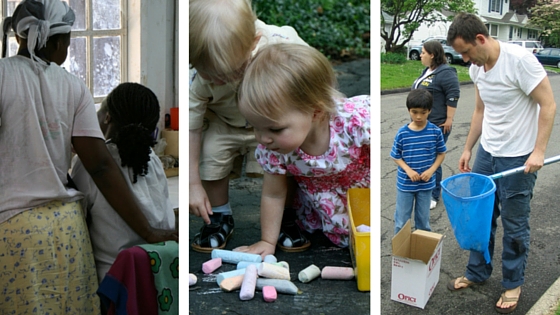
Accept the Help
It was a new church, and I arrived early. As an introvert, I always felt more comfortable pitching in and serving with the others setting up. It saved me having to come up with something to talk about.
I saw someone I knew, so I sauntered over and asked if I could help. “No; I’m pretty much set here, but thanks!”
I stood awkwardly for a moment, then I scoped out the room. The hospitality table caught my eye. Since I have held the esteemed Donut Minister position at a previous church, I thought I would offer my expertise there. I walked over and asked if I could help. “No; I pretty much got it.” The man, although friendly, did not feel compelled to let me assist.
I walked away and found myself in the middle of some kids pushing carts toward the back. I grabbed one cart and started pushing it alongside them. One of the teenage boys came over and swiftly wheeled the cart from me and politely said, “Here; I’ll take that.”
As he wheeled it off, I stood in the middle of nowhere, looking around at everyone else setting up.
I walked over slowly to the previously arranged folding chairs, placed my coat on the back of the chair, and sat down, by myself, doing nothing for the 20 minutes before the service started. That was the longest, loneliest 20 minutes I had endured in a very long time.
This is the opposite of “Serving Together.”
Besides preventing me from serving, everyone that morning squandered an opportunity to provide an introvert a less threatening way to meet people. Pitching in and helping might have given me a feeling of fitting in, but even though I continually offered, I was continually denied—kindly and politely, yes—but denied all the same.
What if I had been a seeking non-believer? What message would I have received?
Jesus modeled serving together. He could have fed everyone himself, but he invited people to take part in a hands-on experience. According to Q Place’s The 9 Arts of Spiritual Conversations, “Inviting individuals to serve with you is a loving and welcoming act. Rather than communicating that others are inferior, with little to offer, it shows that you value their contributions as equal, active parts of a group. And beyond enabling people to feel included and connected, it provides an opportunity for you to affirm them for unique, God-given abilities.”
Next time you are setting up for a group, cleaning up after church, or helping an elderly neighbor, and someone asks if you need help, say, “Yes.” Sure, it might take longer if you have to explain to someone what you are doing, but if you take that time, you are doing much more than just receiving help. You are helping them to belong, to feel like part of the team, and to feel included.
Isn’t that worth a little of your time?
Kim Taylor
Q Place Office Manager

love this perspective, Kim!
Great advice, Kim! Thanks.